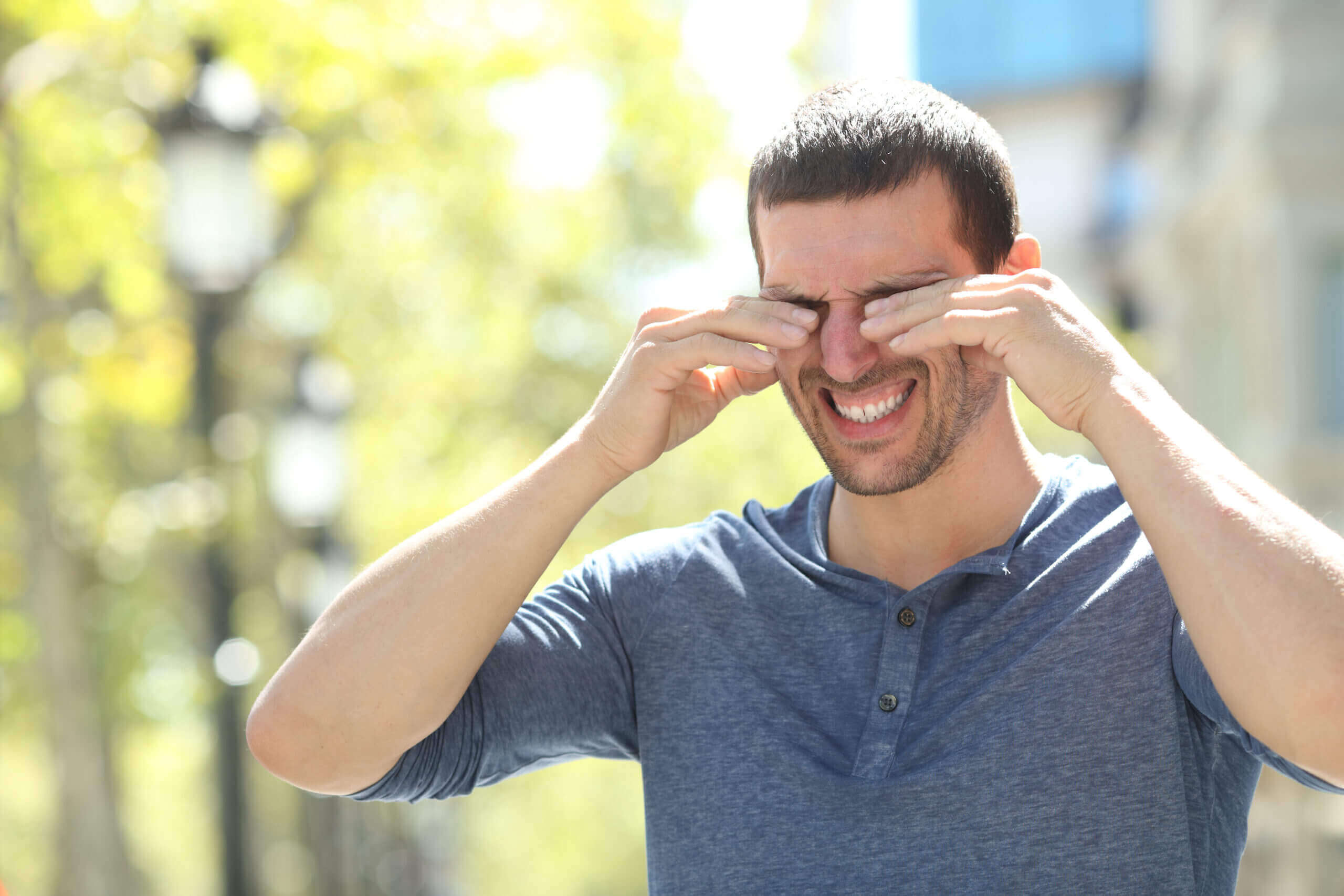You don’t have to live with burning, stinging, red, runny eyes. The experienced eye doctors at Apex Eye specialize in diagnosing and treating dry eye syndrome.
If left untreated, severe cases of dry eye can cause long-term eye problems, such as corneal damage. Professional treatment of dry eye syndrome is important to rule out more serious eye conditions that may mimic dry eye symptoms.


Dry eye syndrome, also known as dry eye disease or keratoconjunctivitis sicca, is a common eye condition characterized by a lack of sufficient moisture on the eye’s surface. Your body’s tears play a vital role in maintaining the health and comfort of your eyes by lubricating them and washing away foreign particles. When the eyes do not produce enough tears or when the tears evaporate too quickly, it can lead to dry, irritated, and uncomfortable eyes.


Dry eyes can be caused by a variety of factors including:
Understanding what is causing your dry eyes is crucial for effective treatment and management. If you believe you are experiencing dry eye syndrome, schedule an appointment with one of Apex Eye’ dry eye specialists in greater Frisco.
In addition to the factors listed above, one of the most common underlying causes of dry eye syndrome is meibomian gland dysfunction (MGD).

Meibomian gland dysfunction, or MGD, is a condition that leads to a decreased quantity and quality of the oil layer in the tear film. Meibomian glands are tiny glands in the eyelids that are responsible for producing the oily layer of tears that helps prevent rapid tear evaporation. When the meibomian glands become blocked or their oil production is compromised, it can lead to an unstable tear film and dry eye symptoms. MGD can result from factors like inflammation, bacterial overgrowth, or simply aging. Addressing MGD is often a key component of managing dry eye effectively.
Things that you can do to manage dry eye symptoms at home include:
If your dry eyes do not respond to home treatments or changes in lifestyle, your eye doctor may recommend prescription eye drops. Prescriptions such as Restasis or Xiidra can alleviate dry eye symptoms.
For severe or chronic dry eye, there are several in-office treatments that can be performed at one of our offices in greater Frisco. These treatments are designed to treat the underlying cause of dry eye syndrome for long-lasting relief.

You don’t have to live with burning, stinging, red, runny eyes. The experienced eye doctors at Apex Eye specialize in diagnosing and treating dry eye syndrome. You can trust our team to deliver personalized and effective treatment that fits your lifestyle.
If left untreated, severe cases of dry eye can cause long-term eye problems, such as corneal damage. Professional treatment of dry eye syndrome is important to rule out more serious eye conditions that may mimic dry eye symptoms.
Dry eye syndrome cannot always be prevented. However, there are steps you can take to protect your eye health:
It is best to check with your eye doctor to determine which drops are right for you. In general, patients with dry eye should look for artificial tears or lubricating drops and avoid eye drops that are intended to reduce redness. If you use eye drops frequently, you may want to choose a type that is free from preservatives.
More than 16 million Americans suffer from dry eye disease.
One of our eye doctors can examine your eyes and discuss your symptoms in order to determine the cause of your dry eye symptoms. A diagnosis of dry eye syndrome depends on the cause of your dry eyes as well as the frequency of your symptoms.
Dry eye syndrome is generally not a direct cause of blindness. If left untreated, patients with dry eye may develop complications such as eye infections, corneal ulcers, and a reduced quality of life. While you are unlikely to lose your vision due to dry eye, it is important to see your eye doctor to maintain your eye health and get relief from dry eye symptoms.